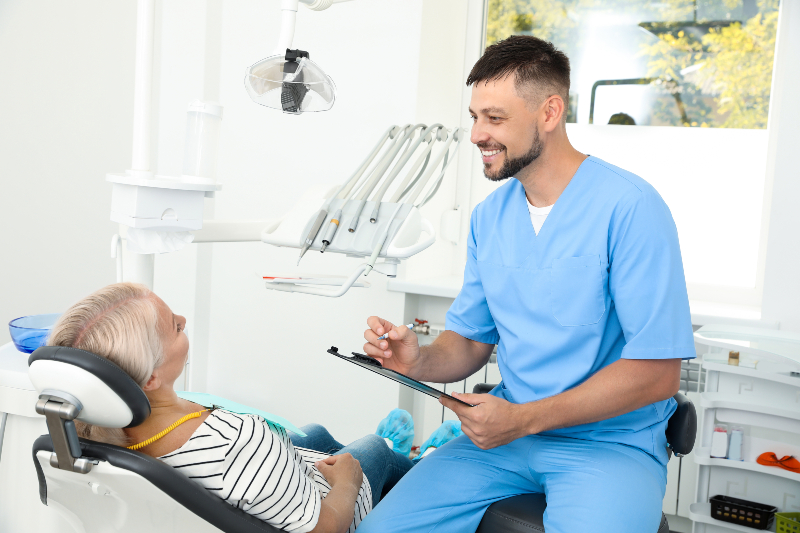Most dentists recommend that patients come in for checkups one to two times each year. However, those regular checkups alone just are not enough to make sure that oral health is good. One of the best ways to get a great report at the dentist in Indianapolis IN is to make sure that good oral hygiene is practiced in between visits. Teeth brushing is the cornerstone of good oral hygiene, but many people just don’t understand how to brush properly.
The general guideline for proper teeth brushing is the “two times two” rule. This means that teeth should be brushed two times per day (usually morning and evening before bed) for two minutes per session. Most dentists recommend using a fluoride added toothpaste. Fluoride in toothpastes can usually add anywhere between 30 and 50 percent of the amount of fluoride needed each day. The remainder of that fluoride can be obtained through simple use of tap water, since most communities in the United States have fluoridated water today.
When brushing teeth, there is no need for major pressure. Gentle brushing motions are adequate to clean teeth. Most dentists recommend a soft bristle toothbrush because it does not damage the tooth enamel. After brushing, it is always smart to floss the teeth thoroughly. While brushing does clean the surface of the teeth, brushing cannot reach those crevices in between the teeth. It is vital that people floss once per day, usually at night. This allows for the removal of any tiny bits of food or debris that may have collected in areas of the gums and teeth that just can’t be accessed with the toothbrush.
In rare cases, the dentist may recommend the use of a fluoride rinse or gel after brushing and flossing. In general, this will only be necessary for patients who already have advanced tooth decay or for people who are unable to get sufficient fluoride though the use of toothpaste and the local water supply. When looking for a local Dentist in Indianapolis IN, consider Moore-Berry Dentistry Inc. They are experienced dentists who know how to put their patients first.



